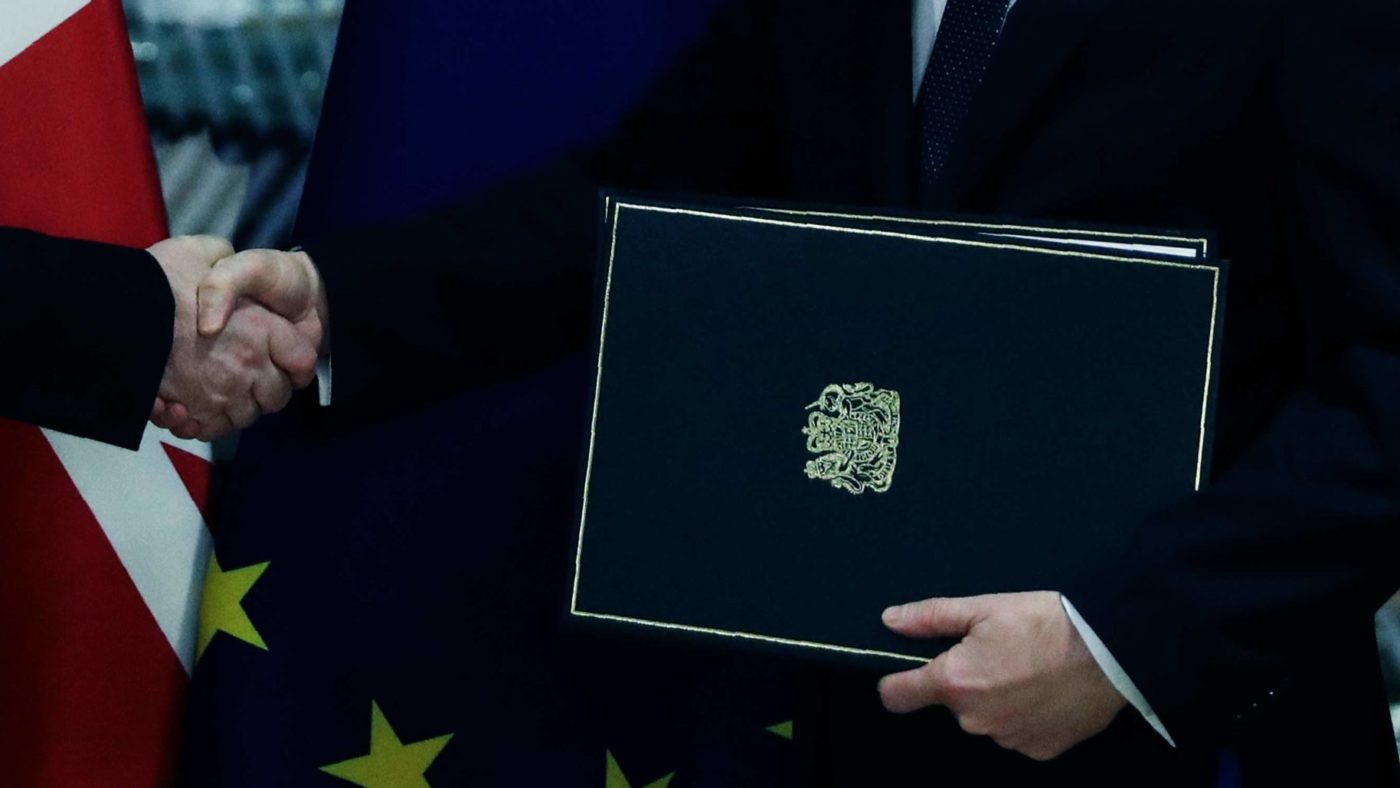Brexit is about sovereignty. It is about reclaiming what the UK had, prior to 1972, when it joined the EC and agreed to pool its sovereignty. That pooling no longer suits the UK, as the 2016 Referendum determined. And nobody voted to give up bits of sovereignty to the EU on the way out. Nor did the parties have the power to agree to such a thing under the EU’s legal arrangements used for the UK’s withdrawal.
The issue to resolve is that the Withdrawal Agreement and Northern Ireland Protocol involve continued EU control over various aspects of UK sovereign decision-making.
Why did the UK agree to this? There is only one reason. It is because the UK obtained an agreement, contained in Article 4 of the Political Declaration, that at the end of 2020 the UK would have a future relationship that respected the UK’s full sovereignty and internal market, and provided for near-frictionless trade to continue.
This was the essential condition. There is no other provision in those documents that favours the UK. The Prime Minister rightly signed up to this, to avoid the artificial cliff edge that arose from the EU’s sequencing of the negotiations. But to achieve such an outcome, the NI Protocol must be replaced at year end by a new arrangement for an invisible border on the island of Ireland. Other provisions of the Agreement must also be superseded where they give continued rights to the European Court of Justice – and EU law – over UK affairs.
How can this be done? The answer is to be found in a combination of different steps, as the Centre for Brexit Policy’s new report ‘Replacing the Withdrawal Agreement’ sets out. For Northern Ireland, there are arrangements that can be put in place which provide for an invisible border without encroaching on UK sovereignty. The UK has demonstrated how so-called “Alternative Arrangements” could achieve just that, but if the EU continues not to engage on this front, the UK should instead offer to guarantee that EU standards will be met, and tariffs collected, for goods and agriproducts flowing across that border – expecting the EU to do the same for flows in the opposite direction. The only possible basis for refusing such a guarantee would be a lack of trust of the UK – and yet the EU has already acknowledged it has this degree of trust in the NI Protocol in respect of the East-West border.
There are other points to consider too. Citizens’ rights can be protected solely through national legislation. And if relations are smooth and a satisfactory trade deal is forthcoming, the ex gratia payment of monies the EU seeks from the UK can continue to be met, so long as the UK exits all remaining (and considerable) liabilities from the EU system.
Outside the EU, the UK needs its freedom in order to protect itself from arrangements for which it will no longer have an adequate say. While inside, the UK could not question the uneven playing field created by the Eurozone’s legal structure, the effects of which include the dumping of financial risk on the UK; dumping of goods through a structurally undervalued euro currency; and unfair trade subsidies under the Eurozone’s internal fiscal arrangements. The UK needs to be able to take corrective action under international capital standards and WTO trade law.
The offer to the EU is what it always has been – a friendly, win-win future relationship that leaves both parties in charge of their own affairs, covering goods and, importantly, services – where the UK has the surplus, counterbalancing its deficit in goods. This is the only fair and sovereign outcome for Brexit and the only solution consistent with the right of self-determination just exercised by the UK’s voters.
Click here to subscribe to our daily briefing – the best pieces from CapX and across the web.
CapX depends on the generosity of its readers. If you value what we do, please consider making a donation.


